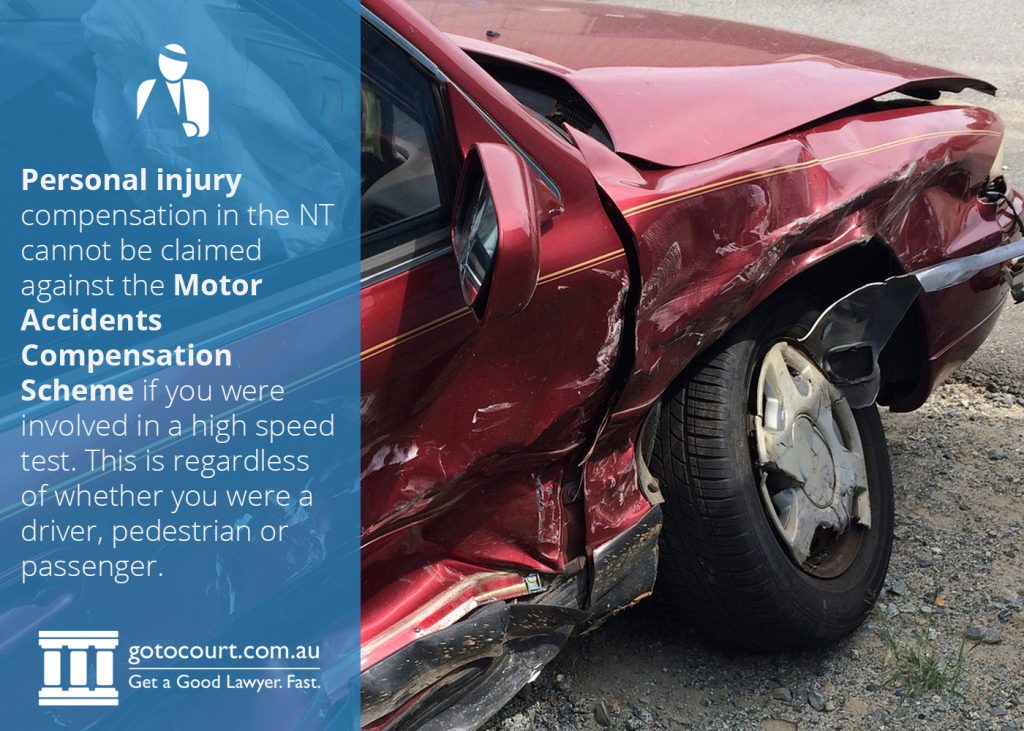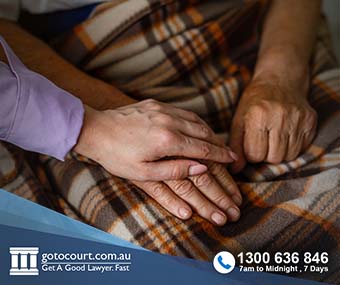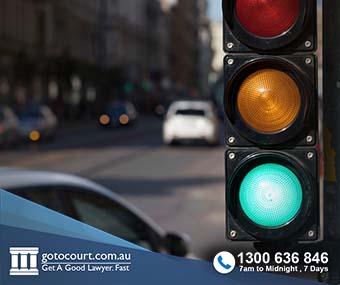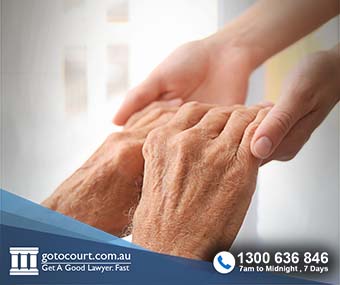Personal Injuries in the Northern Territory
Personal injury legal practice in the Northern Territory is mainly governed by the Personal Injuries (Liabilities and Damages) Act. Claims under the Personal Injuries (Liabilities and Damages) Act are referred to as common law or negligence claims.
The Personal Injuries (Liabilities and Damages) Act covers most negligence claims in the NT, except for the following:
- Death or injury claims under the Motor Accidents (Compensation) Act;
- Compensation claims under the Return to Work Act and Return to Work Regulations;
- Personal injury claims for dust-related conditions, including asbestos-related diseases; and
- Compensation claims for injuries suffered as a result of defective or malfunctioning goods or products.
You can claim compensation for loss of income, medical expenses and pain and suffering in a negligence case. You have three years to bring a claim of negligence from the date of your personal injury in accordance with the Limitation Act.
Recommended Resources
Northern Territory Compensation Resources
Victims of Crime Assistance in NT
Duty of Aged Care in Northern Territory
Workers compensation
Workplace injury compensation claims are regulated under the Return to Work Act and Return to Work Regulations. Workers are entitled to the following compensation and benefits under the Return to Work legislation:
- Weekly payments of your normal pay, up to 26 weeks;
- After 26 weeks, you are entitled to up to 75% of your normal weekly pay which is capped at 250% of the NT’s average weekly wage ($3,543 at the time of writing);
- Expenses for services such as family counselling, subject to a cap;
- Medical costs but not including in-patient, surgical or interstate evacuation costs; and
- In limited circumstances, legal advice for mediation.
The Return to Work Act 1986 covers compensation for both permanent impairment and time spent with the incapacity to work.
Unlike other states and the Australian Capital Territory where ‘worker’ is defined in the workers’ compensation legislation, worker in the NT aligns with the Australian Taxation Office’s definition under the PAYG test. This means that the following are not considered workers for workplace injury claims:
- Immediate family of the employer;
- Company directors;
- Volunteers; and
- Household workers earning less than 20% of the average NT weekly earnings.
Employers must maintain their insurance through NT WorkSafe or be authorised to self-insure. Regardless of whether your employer self-insures or is insured through NT WorkSafe, your entitlements are the same.
Car and motor vehicle accident compensation
Compensation for injuries suffered in car and other motor vehicle accidents is paid in accordance with the Motor Accidents (Compensation) Act under the Motor Accidents Compensation Scheme. Claims for compensation under the Motor Accidents Compensation Scheme are lodged through TIO.
The NT has a no-fault car accident compensation scheme. This means that you do not have to prove the other driver was at fault to obtain compensation for your injuries. In some circumstances where the other driver was negligent, you can also claim compensation against the driver personally under the Personal Injuries (Liabilities and Damages) Act.
Restrictions and exclusions on what compensation you are entitled to under the Motor Accidents (Compensation) Act apply. For instance, you would not be able to obtain compensation or benefits under the Scheme if you are convicted or deemed to have been reckless, were drink driving or engaged in criminal conduct at the time of the accident.
Drivers or owners of unregistered vehicles are also not covered under the Motor Accidents Compensation Scheme in the NT. This is because the insurance is paid through the vehicle registration.
Passengers and pedestrians are protected, however, and can be compensated for injuries caused by an unregistered vehicle accident.
No one can claim compensation if they suffered injury as a result of a high speed test or motor sports. This is regardless if they were a driver, pedestrian or passenger. This exclusion also applies to unregisterable vehicles such as quad bikes, buggies and motocross bikes.

Other limitations and exclusions apply to the Motor Accidents Compensation Scheme in the NT. So it is important to discuss your particular circumstances with a lawyer.
Public liability
Public liability is also known as occupier’s liability and is a type of negligence claim made under the Personal Injuries (Liabilities and Damages) Act in the NT. The types of injuries and accidents which give rise to a public liability claim include slip and fall accidents, sporting accidents and injuries suffered during a recreational activity.
Product liability
Product liability is the area of personal injury law in the NT which deals with injuries caused by malfunctioning or faulty products or goods. In the NT, the Personal Injuries (Liabilities and Damages) Act does not apply to product liability claims.
Instead, consumers are protected from harm from malfunctioning or defective goods under the national Australian consumer law (under the Competition and Consumer Act 2010).





















